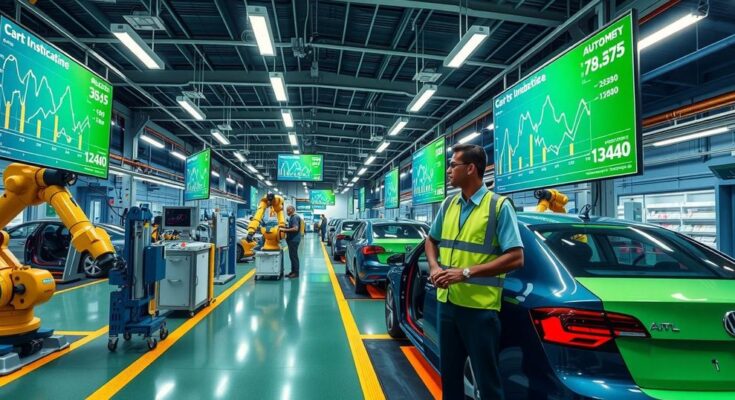The article highlights the importance of adopting modern technology within South Africa’s automotive sector, particularly among smaller aftermarket players. It discusses substantial investments from major manufacturers and the necessity for technology implementation to enhance efficiency. The challenges posed by fragmentation and outdated systems are addressed, along with the need for comprehensive training and the potential for significant growth and innovation in the industry.
The South African automotive sector is critical for the nation’s economic revitalization. President Ramaphosa has announced several investment initiatives and industrialization programs aimed at boosting local production. While larger companies are adopting advanced technologies, smaller firms in the aftermarket face challenges that must be addressed to ensure comprehensive progress in the industry.
Significant investments have cultivated a robust automotive manufacturing ecosystem within South Africa. Special economic zones like the Tshwane Automotive Special Economic Zone and the Coega Special Economic Zone host major manufacturers, including Ford, which recently pledged R5.2 billion to enhance local operations with advanced technologies. Despite this growth, limitations in skills and infrastructure may impede the industry’s sophistication.
Innovations such as BMW’s “iFactory” principle illustrate how digitalization and AI can improve production efficiency and sustainability. Ford utilizes big data analytics to refine its global supply chain and lower carbon emissions, while Toyota is enhancing its production facilities with digital systems in South Africa. It is crucial that smaller aftermarket players do not fall behind in adopting these advancements.
The aftermarket industry faces fragmentation and competition that can result in inconsistencies. Vulnerabilities to counterfeit goods may jeopardize safety and reliability. Many local parts dealers continue to rely on outdated paper systems for stock management, leading to inefficiencies and potential errors that undermine customer satisfaction.
Adopting modern technology throughout the supply chain, from manufacturing to retail, is vital. Smaller dealers can utilize specialized tools like code scanners and barcode printers to improve operations. By implementing intelligent solutions, time-consuming tasks such as inventory management can be completed more efficiently, allowing staff to focus on strategic roles that enhance customer service and business processes.
Comprehensive training strategies are essential for leveraging new technology effectively. Employees must understand digital tools and the dynamic nature of modern supply chain management. By adopting concepts such as digital twin technology, firms can create virtual supply chains for better scenario simulation and logistics optimization.
Embracing these trends presents significant opportunities for the aftermarket to incorporate automation technologies, fostering immediate benefits and long-term growth for South Africa’s automotive sector. The potential for innovation is boundless, limited only by the creativity and commitment of stakeholders in the industry.
In conclusion, the South African automotive industry’s growth hinges on the adoption of advanced technology and modernization of practices, particularly within the aftermarket sector. It is imperative that smaller entities embrace innovative solutions to improve efficiency and customer satisfaction. Furthermore, comprehensive training on these technologies will unlock new opportunities for growth, fostering a more robust automotive sector in the country.
Original Source: www.zawya.com




